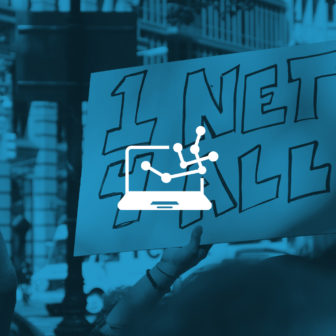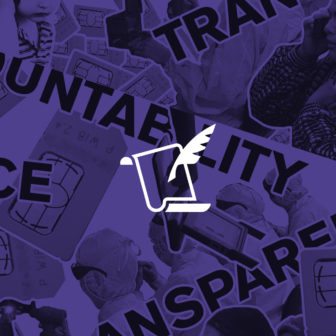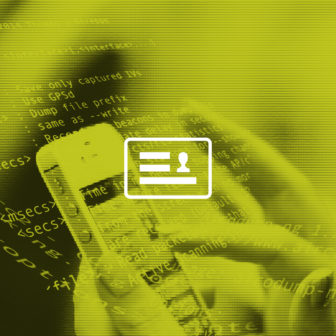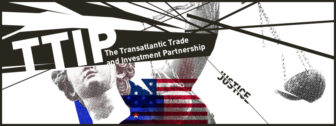Tag: US

Dear U.S. FCC: Net Neutrality Rules Must Ban Zero Rating. Period.
Next week, the U.S. Federal Communications Commission will vote on rules that, it says, would finally put in place Net Neutrality protections for U.S. internet users. While we are optimistic about the strength of these rules, we’re also worried they will fail to adequately protect against so-called “zero rating” services — schemes devised by internet providers and services like Facebook, Wikimedia, and Spotify in which app usage doesn’t count against data caps —and other forms of price discrimination. A failure to include such language in the FCC’s new rules would not only render them weaker than what came before, but would also create a giant opening for Verizon and other carriers to perpetrate rampant online discrimination.

U.S. eases sanctions on tech exports to Sudan
This week the U.S. government issued a General License to provide users with easier access to the internet and a wide range of software, hardware, and services “incident to personal communications” in Sudan. Access applauds the move, which follows years of advocacy by our organization alongside civil society partners in the U.S. and Sudan.

Access delivers petition to U.S. agencies to investigate use of zombie cookies by mobile carriers
Today, Access delivered a petition signed by 3,000 users to the U.S. Federal Trade Commission (FTC) to investigate the use of so-called “zombie cookies” by mobile carriers to track their customers’ web traffic. Access also delivered a similar petition to the U.S. Federal Communications Commission (FCC) because both agencies arguably have the authority to investigate these harmful practices.

Taming the skies: Obama memo looks at commercial drones, restricts government use
Today, President Barack Obama issued a presidential memorandum addressing the increased development and use of drones within the United States. Among other things, the memorandum, which has the force of law, requires the National Telecommunications and Information Administration (NTIA) to develop a multistakeholder process for the creation of non-binding rules governing commercial drone use. The NTIA will collaborate with businesses and civil society organizations to develop the guidelines, which must be drafted to adequately address threats to privacy and free expression posed by the public use of the technology, particularly the unique challenges of drones as mobile internet service platforms.

President Obama’s cyber summit must not dwell on solutions that violate privacy
Today, the White House will hold its Summit on Cybersecurity and Consumer Protection. While improved digital hygiene is critically important, the information-sharing proposals offered by Congress and President Obama so far place user privacy at risk while being of questionable utility for improving digital security.

New cybersecurity legislation introduced in U.S., but still doesn’t protect users
Today, U.S. Senator Tom Carper introduced the Cyber Threat Sharing Act of 2015, a new bill to authorize the public/private dissemination of cybersecurity-related information. The legislation’s limitations on the type of information that can be shared are not enough to protect user privacy. Access is calling on the U.S. Congress not to consider information-sharing legislation–which could ostensibly create new surveillance authorities under the guise of cybersecurity–until existing surveillance authorities are adequately reformed.

TTIP: a peek into the negotiations
As the 8th round of the TTIP negotiations just ended in Brussels, Access reflects on the state of play of this major transatlantic trade deal.

Access cheers FCC move toward Net Neutrality
Today U.S. Federal Communications Commission Chairman Tom Wheeler confirmed that the agency will move to pass strong Net Neutrality protections later this month. Any action by Congress to roll back FCC authority or threaten common carrier status for broadband providers will meet thunderous opposition, by U.S. users as well as international communities.

New Crypto Guidance Draft Offers Brighter Path Forward
The U.S. National Institute of Standards and Technology (NIST) has released the second draft of its “Cryptographic Standards and Development Process,” a document intended to provide principles and guidance on the creation of cryptographic standards. Crypto standards developed by NIST serve as the basis for secure communications and interactions across the internet.
Access applauds NIST for the new draft — which expands upon and strengthens the language behind important principles first set out in the previous draft — and for actively and transparently engaging with the public on these important issues. We also encourage NIST to include specific language directed at the National Security Agency (NSA) before the text is finalized.

Supercookies Live On, and We’ve Got to Stop Them
Access has been fighting the use of supercookies since last fall, when we learned that the mobile carrier Verizon Wireless had been secretly injecting Unique Identifier Headers, or UIDH, into every single http request made by its mobile users. Recently, we learned even more disturbing news about mobile tracking on Verizon and other cell phone carriers over the past few weeks. Even without this type of third-party abuse, though, the very existence of these cookies violates our privacy rights if we can’t truly opt out.